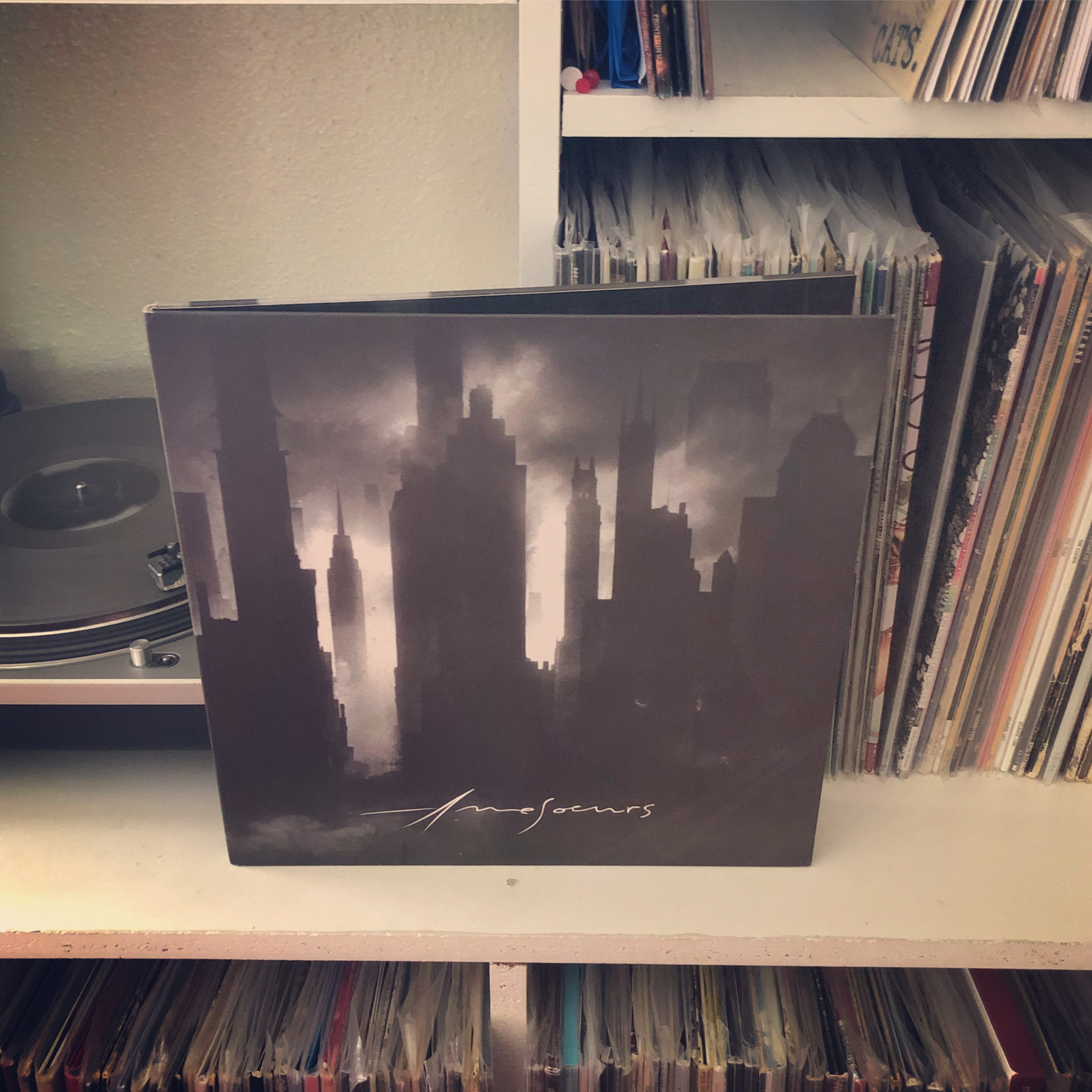
For all the impact its had on the global metal landscape, the French blackgaze scene is dominated by a small handful of projects. Perhaps the two most important are Les Discrets and the incomparable Alcest. And in Amesoeurs (French for “soulmates”), Fursy Teyssier of Les Discrets joins forces with Neige of Alcest, Audrey Sylvain of Peste Noire (the female voice on Alcest’s debut), and Winterhalter, who would go on to be a member of both Les Discrets and Alcest.
Amesoeurs, the group’s only album, stretches the limits of black metal in a similar way that Alcest and Les Discrets do, but in this project, they meld its hellish fury with the dark moodiness post punk more than glistening joie de vivre of post rock or the somnambulant heaviness of shoegaze.
This record is sometimes mentioned as if it’s an interesting footnote in Neige’s career. It’s hard enough to keep track of his seemingly endless list of projects let alone listen to all of them. And admittedly, I treated this album as a curiosity for a while, more valuable for the significance of its players’ later projects than for the music itself (see also: Cap’n Jazz). Though for this record, that idea may have sprung from the high price tag of the copies floating around the internet, so I found it best to not get attached. But after managing to find an attainable copy, I’m finally letting myself realize just how gorgeous this record is.
Amesoeurs formed in 2004 as a project to explore the isolation and depression of the modern, post industrial world. This was just before Neige would reclaim the Alcest name for his own brilliant mixture of black metal, post rock, and shoegaze, while he was playing in anarchist black metal band Peste Noire (which Audrey and Winterhalter would later join). While their 2005 EP was still very close to traditional black metal, it peaked over those walls, experimenting a bit with post punk and shoegaze elements—experiments that Neige would take to the extreme in Alcest’s 2005’s Le Secret EP and 2007’s Souvenirs d’un Autre Monde.
By 2009, he had grown quite comfortable outside of black metal’s kvlt of traditionalism, and this, the project’s only full length, shows it. The record describes itself as “A kaleidoscopic soundtrack for the modern era,” and as pretentious as that might sound, it’s an apt description of the sonic palette. While there are moments of full-speed black metal blitz [like on “Trouble (Evails Infâmes)“], most of the record sounds more like Bauhaus and Joy Division than Bathory and Mayhem. Clean angular guitars, dark bass lines, and clean vocals are par for the course, occasionally punctuated by blast beats, walls of distortion, and Neige’s unearthly shriek.
The instrumental “Gas in Veins” opens the record like an instrumental thesis statement. A driving bass line and stabbing guitar arpeggios open the song, riding a moody drum pattern. Thickly distorted guitar chords join a few minutes in, eventually exploding into full black metal catharsis. As the record continues, these colors are mixed into different arrangements, creating an album that’s sonically diverse but compositionally consistent.
Songs like “Les Reuches Malades” (The Sick Hive), “Faux Semblants” (Deceptive Semblances), “Video Girl,” and “Amesoeurs” spend most of their time in the post punk corner with more pop-driven rhythms, cleaner guitars, and more prominent bass lines. Tracks like “Heurts” (Quarrel), “Recueillement” (Spiritual Contemplation), and “Trouble (Evails Infâmes)” (Abject Awakenings) draw more from black metal with louder guitars and screamed vocals. But despite the extremes of this record, most songs exist between the two poles. The blackest metal tracks on here have a healthy dose of post punk. The post punkiest songs have a metallic edge.
Nowhere is this seen more clearly than the closer “Au Crépuscule de nos Rêves” (At the Twilight of Our Dreams), in which clean and distorted guitars play the most emotive progression of the album to a pensive yet powerful tempo and shrieked vocals, erupting with blast beats and melodic tremolo guitars that subside to a section of delicate clean guitar arpeggios that build to an emotional climax (and an industrial-influenced hidden track).
A lot of the tricks are pretty standard go-tos in the Alcest playbook, but this doesn’t sound much like an Alcest record. While there’s no mistaking Neige’s guitar or voice, Alcest is a project that celebrates the magic of life. Amesoeurs mourns the coldness of industrialism. That mood shift makes this record a distinct entity in Neige’s (and Fursy’s) larger body of work. And while Alcest was still a year out from releasing their first masterpiece, Amesoeurs proved that Neige was making magic even before changing the course of post-black metal.